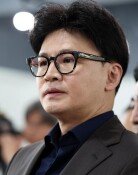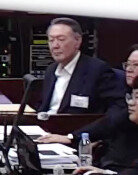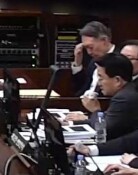N. Korea`s Aung San Suu Kyi
Myanmar is perennially ranked along with North Korea as one of the worlds worst countries for human rights abuses. After gaining independence from Britain in 1948, Myanmar was recognized as a prosperous country in Asia along with the Philippines for a time. After a junta was set up in 1962 through a military coup under the goal of establishing its own brand of socialism, however, Myanmar was reduced to the worst form of authoritarianism like North Korea. The Southeast Asian country simultaneously established diplomatic ties with both Koreas in 1975, but severed relations with the North after the 1983 Aung San terrorist bombing. Naypyidaw restored ties with Pyongyang in 2007 and both sides have since maintained a close relationship.
A military authoritarian government has ruled Myanmar for 48 years while North Koreans have been suffering under an oppressive ruling dynasty for 62 years. The North exports arms to Myanmar and receives food in return. In October last year, the U.S. House of Representatives said the North might have used Myanmar as an intermediary base for arms exports and that Naypyidaw bought technology for developing nuclear weapons from Pyongyang. Myanmar grew even more infamous in 2005 when it moved its capital from Yangon to the remote mountainous city Naypyidaw.
In Myanmars first general elections in 1990, the opposition party led by Aung San Suu Kyi won a landslide victory for the first time since the 1962 military coup, but the junta nullified the election results and refused to transfer power. Twenty years later, a party supported by the military government won the Nov. 7 general elections with major opposition leaders banned from running. Chaos continues in Myanmar, however. Aung San Suu Kyi, who was pursuing a Ph.D at Oxford University in 1988, returned home to Myanmar to care for her sick mother and joined the pro-democracy movement. She won the Nobel Peace Prize in 1991 but was put under house arrest for 15 of the past 21 years. She was finally released Saturday.
North Korea has neither symbolic figure for democracy like Suu Kyi nor an anti-government figure like this years Nobel Peace Prize winner Liu Xiaobo of China. Pyongyang nips democratic and human rights movements in the bud. Those who engage in such activities are executed or sent to concentration camps. Even if a figure like Liu issues a declaration urging democracy, North Koreans will probably never know about it or anything else from the outside world due to Pyongyangs tight control over the media. Many innocent North Koreans might also be dying in concentration camps.
Editorial Writer Kwon Sun-taek (maypole@donga.com)




![[단독]김경 “1억원 줄때, 강선우도 함께 있었다” 자수서](https://dimg.donga.com/c/138/175/90/1/wps/NEWS/IMAGE/2026/01/14/133148772.5.jpg)


